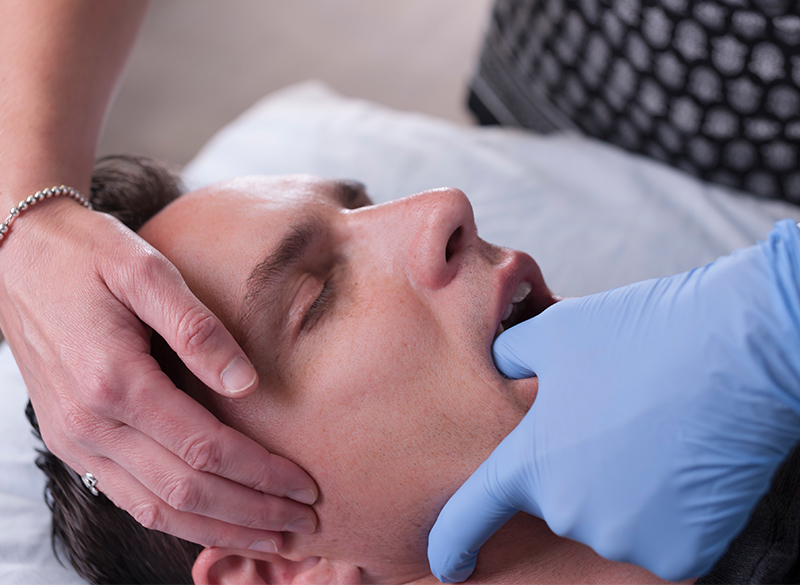
Physiotherapy can help treat TMD by reducing pain and inflammation in the joint. It will also help to improve the movement and function of your TMJ (Temporomandibular joint) by working on the muscles and the joint itself. At Fortius Physiotherapy, we will create a personalized treatment plan to suit your needs. These will include dos and don’ts for your daily life.
Difficulty chewing and swallowing
Soreness in the jaw
Pain in your ear, neck, head
Pain in either side of your face
Difficulty moving the jaw, even while speaking
Jaw feels “locked”
It's hard to open or close your mouth
Tenderness and ache in your facial region
Clicking, grinding, clenching of the jaw
The TMJ specialist at Fortius will assess and evaluate your pain, discomfort, and other symptoms. We will assess the head, neck and TMJ, then create an individualized treatment plan to help you recover. Often, TMJ is mostly temporary and physiotherapy treatment is very effective.
Some of your treatments may include:
Posture correction
Jaw movement exercises
Manual therapy - massage, stretching, joint mobilization
Laser and ultrasound treatments
Relaxation training
Pain control
Excessive chewing (of your nails, gum, pen caps, etc)
Yawning unnecessarily
Holding your phone up using only your shoulder
Resting your jaw in your hand
Sleeping face down, since this puts unnecessary strain on your neck
Be aware of when you are clenching your jaw or grinding your teeth
Avoid hard or chewy foods and opt for soft, easy to chew foods instead
Cut tough food into smaller pieces to avoid excessive jaw strain
